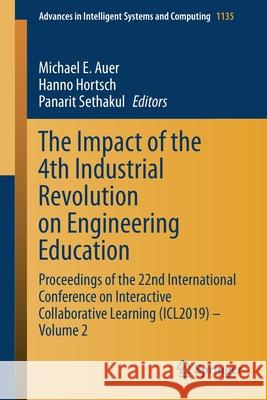The Impact of the 4th Industrial Revolution on Engineering Education: Proceedings of the 22nd International Conference on Interactive Collaborative Le » książka
topmenu
The Impact of the 4th Industrial Revolution on Engineering Education: Proceedings of the 22nd International Conference on Interactive Collaborative Le
ISBN-13: 9783030402709 / Angielski / Miękka / 2020 / 905 str.
The Impact of the 4th Industrial Revolution on Engineering Education: Proceedings of the 22nd International Conference on Interactive Collaborative Le
ISBN-13: 9783030402709 / Angielski / Miękka / 2020 / 905 str.
cena 1129,80
(netto: 1076,00 VAT: 5%)
Najniższa cena z 30 dni: 1079,53
(netto: 1076,00 VAT: 5%)
Najniższa cena z 30 dni: 1079,53
Termin realizacji zamówienia:
ok. 22 dni roboczych
Bez gwarancji dostawy przed świętami
ok. 22 dni roboczych
Bez gwarancji dostawy przed świętami
Darmowa dostawa!
Kategorie:
Kategorie BISAC:
Wydawca:
Springer
Seria wydawnicza:
Język:
Angielski
ISBN-13:
9783030402709
Rok wydania:
2020
Wydanie:
2020
Numer serii:
000453356
Ilość stron:
905
Waga:
1.26 kg
Wymiary:
23.39 x 15.6 x 4.65
Oprawa:
Miękka
Wolumenów:
01
Dodatkowe informacje:
Wydanie ilustrowane











